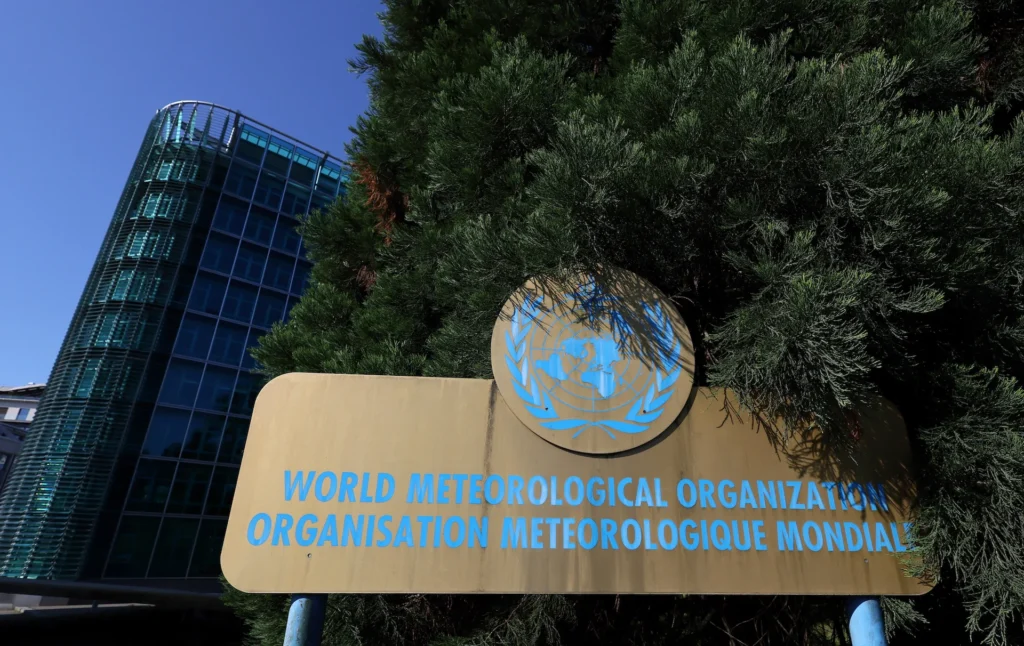Two new global reports have sounded fresh alarms over the pace and impact of climate change, warning that the world is edging closer to irreversible environmental thresholds.
The World Meteorological Organisation (WMO) says carbon dioxide levels in the atmosphere have surged to a record high, fuelling more frequent and extreme weather events. At the same time, the Global Tipping Points Report 2025 warns that key Earth systems, from coral reefs to ice sheets, are approaching points of no return.
Both reports arrive just weeks before the United Nations Climate Change Conference (COP30) in Brazil, adding urgency to calls for governments to accelerate emissions cuts and strengthen resilience efforts, especially in vulnerable regions such as Africa.
Record carbon levels fuelling climate disruption
According to the WMO, the global concentration of carbon dioxide rose by 3.5 parts per million (ppm) between 2023 and 2024, the fastest increase since records began in 1957. Methane and nitrous oxide levels also hit new highs, rising 16% and 25% respectively above pre-industrial levels.
“These gases trap heat and are driving faster, more severe weather extremes,” said Ko Barrett, WMO deputy secretary-general. “What we’re seeing is the climate system responding to relentless human pressure.”
The report attributes the rise largely to fossil fuel use and widespread wildfires, particularly in South America. Natural carbon sinks such as forests, soil, and oceans, which absorb about half of human emissions, are also weakening.
“We depend on these systems to buffer our impact,” said Dr Oksana Tarasova, WMO’s senior scientific officer. “But as they come under stress, their ability to help is diminishing.”
The Amazon rainforest, for example, endured severe drought through 2023 and 2024, worsened by the El Niño weather pattern. Scientists say prolonged heat and water stress reduce trees’ ability to photosynthesise, further weakening one of the planet’s most critical carbon sinks.
A warning from tipping points
The global tipping points report, produced by 160 experts from 23 countries, highlights how Earth systems are nearing thresholds beyond which changes could become self-reinforcing and irreversible.
Warm-water coral reefs, vital for coastal protection and fisheries across Africa and the tropics, are already undergoing widespread dieback. The report also warns that the 1.5°C global warming threshold is likely to be breached within years, escalating risks to food systems, health, and infrastructure.
Africa contributes the least to global emissions yet faces some of the harshest consequences. Weak infrastructure, limited finance and poverty make the continent vulnerable to cascading effects.
Why this matters for Africa
For Africa, where climate impacts already strain water, food, and health systems, the new findings underline the urgency of adaptation. Coral reef loss threatens livelihoods and coastal safety, while shifts in rainfall patterns and rising temperatures endanger crops and power supplies.
In South Africa, a country heavily reliant on coal, scientists say the transition to renewable energy is not just an environmental necessity but an economic and health imperative. The report urges governments to halve global emissions by 2030 and reach net zero by 2050, calling for rapid investment in clean energy, sustainable land management and social protections for affected communities.
It also calls for positive tipping points, reinforcing changes that can accelerate the shift to sustainability. Examples include the expansion of solar and wind power, electric vehicles, and climate-friendly food systems, which could reshape economies if scaled effectively.
A narrowing window for action
Both reports share a stark message: the longer the world delays deep emissions cuts, the harder it will be to prevent irreversible damage. Scientists warn that every fraction of a degree and every year of inaction increases risks for ecosystems and people alike.
For Africa, already on the frontlines of climate change, the stakes could not be higher. As global leaders prepare for COP30, experts say decisive, fair and well-financed climate action is essential, not only to curb emissions, but to secure the continent’s future.










